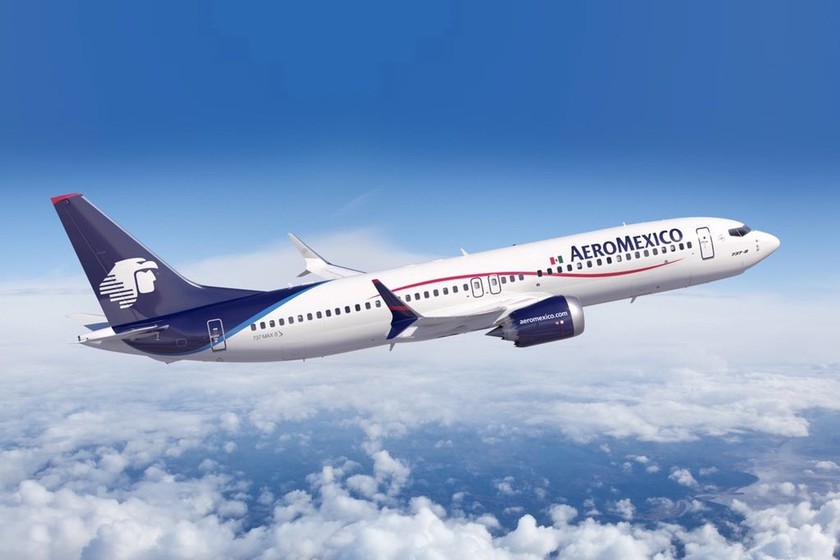
In an era where technology is rapidly reshaping industries, the airline sector stands at the forefront of digital transformation. This pivotal shift is not merely about enhancing operational efficiency but about revolutionizing the passenger experience, ensuring sustainability, and setting new standards for safety and reliability. The airline industry’s journey through digital transformation is a testament to its commitment to innovation and customer satisfaction.
Why Digital Transformation?
The airline industry is adapting to digital transformation for several compelling reasons. The need to meet evolving consumer expectations, enhance operational efficiency, and address global challenges such as sustainability are key drivers. Digital transformation enables personalized services, streamlined operations, and real-time updates, significantly improving customer satisfaction and loyalty. Leveraging technologies like artificial intelligence (AI), machine learning, and big data analytics optimizes flight operations, maintenance, and fuel management, leading to substantial cost savings and operational efficiency.
Key Trends and Technologies
As we look ahead to 2024, several trends and technologies are poised to shape the airline industry. According to Future Travel Experience, robotics, automation, biometrics, digital identity, sustainability, and Urban Air Mobility are among the top trends. These technologies are expected to enhance passenger experiences and improve business performance.
Case Studies and Examples
Major industry players are already showcasing the diverse and impactful ways digital transformation is being integrated into their operations. For instance, Southwest Airlines has implemented an advanced 5D Flight Planning and Flight Management Solution powered by machine learning to optimize flight efficiency and sustainability. Similarly, Finnair has adopted digital tools to enhance its sustainability efforts, including using Amadeus’s Altéa Departure Control Flight Management System to reduce carbon emissions.
Challenges and Opportunities
Despite the promising advancements, digital transformation in the airline industry is not without its challenges. According to McKinsey, 70% of large-scale transformation programs fail to meet their potential due to various reasons, including overambitious goals and lack of clear strategy. However, the potential benefits of successful digital transformation are immense, including increased customer satisfaction, operational efficiency, and competitive advantage.
Conclusion
As we chart the trajectory of the airline industry’s digital transformation, it becomes evident that this journey is reshaping the essence of air travel. The industry’s embrace of digitalization heralds a new era of aviation that is sustainable, resilient, and more connected than ever before. As airlines navigate the digital frontier, their innovative approaches serve as beacons of progress, showcasing the transformative power of digital solutions. In this digital renaissance, the airline industry is not just flying towards the future; it is leading the way, inviting passengers and stakeholders alike to reimagine the possibilities of air travel in a digitally empowered world.
Table of Contents
- Challenges and Future Trends in Airline Digital Transformation
- Workforce Adaptation and Skill Development
- Data Analytics and Artificial Intelligence
- Automation and Its Impact on Jobs
- Financial Investment in Digital Transformation
- Regulatory and Competitive Landscape
- Consumer Behavior and Market Trends
Challenges and Future Trends in Airline Digital Transformation
Workforce Adaptation and Skill Development
The digital transformation in the airline industry necessitates a significant shift in workforce skills and roles. As digital technologies become more integrated into operations, there is a growing demand for aviation professionals to be digitally literate and proficient in data analysis. According to Jainita Hogervorst, Director of Aerviva Aviation Consultancy, aviation professionals must be comfortable navigating digital systems, understanding basic programming concepts, and using relevant software tools (AeroTime). This shift requires continuous learning and adaptation to new technologies as they emerge.
Moreover, the integration of automated technologies will lead to the reduction of process-driven, low-skilled physical and administrative jobs. However, critical positions that involve immediate decision-making, requiring human logic, experience, and common sense, will remain indispensable (AeroTime). This transition underscores the importance of training and upskilling the current workforce to handle new responsibilities and maintain proficiency in essential skills, such as manual piloting, to manage exceptional situations like system failures or emergencies.
Data Analytics and Artificial Intelligence
Data analytics is at the core of the digital transformation in the airline industry. Airlines collect vast amounts of data on various aspects, from flight performance to passenger preferences. The emergence of technologies such as artificial intelligence (AI) and machine learning enables airlines to leverage this data to optimize routes, reduce fuel consumption, and enhance the passenger experience (AeroTime). Aviation professionals must understand how to interpret and utilize this data effectively to drive operational efficiency and improve decision-making processes.
Business intelligence solutions are also becoming a priority for airport IT investments. According to the Airports Council International (ACI), 93% of airports plan to implement business intelligence initiatives for asset management and flight operations by 2025 (AeroTime). These initiatives aim to enhance operational efficiency and safety, requiring aviation professionals to work alongside these technologies, monitor their performance, and intervene when necessary.
Automation and Its Impact on Jobs
Automation is transforming various aspects of the airline industry, from check-in kiosks at airports to autopilot systems in the cockpit and air traffic management. This integration of automation enhances efficiency, safety, and the overall passenger experience (AeroTime). However, it also necessitates a shift in the roles of aviation professionals. For instance, flight crews now spend less time manually controlling the aircraft and more time monitoring systems, making strategic decisions, and ensuring passenger safety and comfort. This shift requires them to adapt to new responsibilities and become proficient in using automation tools.
While automation can make certain skills less frequently used, such as manual piloting, it is crucial for aviation professionals to stay proficient in these skills to handle exceptional situations that require manual intervention (AeroTime). Ensuring that aviation workers are well-trained in the digital age is essential for maintaining aviation safety and operational efficiency.
Financial Investment in Digital Transformation
The financial investment in digital transformation is a critical challenge for airlines, especially in the post-COVID-19 era. The pandemic has significantly impacted the airline industry, with revenues in 2020 totaling $328 billion, around 40% of the previous year’s figures (McKinsey). Despite financial constraints, it is recommended that airlines invest more in IT and digitalization to enhance operational efficiency and customer experience. Before the pandemic, airlines spent roughly 5% of their revenue on IT, which is relatively low compared to other sectors such as retail (6%) and financial services (10%) (McKinsey).
Investing in digital transformation can help airlines respond to the quicker recovery of domestic and short-haul flights by enhancing direct sales and customer relationships. Additionally, airlines can invest in making check-in and boarding processes more seamless and improving support services such as revenue accounting and invoicing (McKinsey). These investments, although requiring significant financial resources, can yield substantial payoffs in terms of operational efficiency and customer satisfaction.
Regulatory and Competitive Landscape
The regulatory and competitive landscape of the airline industry is also evolving in response to digital transformation. Airlines must navigate the complexities of working closely with regulators, especially as the state becomes a more active player in the sector. This collaboration can be seen as an opportunity to shape the evolution of the industry, including setting standards for greenhouse-gas emissions, increasing cash-on-hand requirements, and allowing greater inflows of foreign capital (McKinsey).
Furthermore, the disparity in performance among airlines is expected to increase. Some airlines have responded to the pandemic by restructuring for greater efficiency, while others have struggled to adapt. Airlines that proactively transform their operations and invest in digital technologies are likely to emerge stronger and more competitive in the long term (McKinsey).
Consumer Behavior and Market Trends
The COVID-19 pandemic has irrevocably changed consumer behavior and market trends in the airline industry. Hygiene and safety standards have become more stringent, and digitalization continues to transform the travel experience. Mobile apps are now used to store travelers’ vaccine certificates and COVID-19 test results, reflecting the increased reliance on digital tools (McKinsey).
Leisure travel is expected to fuel the recovery of the airline industry, while business travel will take longer to rebound and may only recover to around 80% of pre-pandemic levels by 2024. The rise of remote work and flexible working arrangements is likely to result in fewer corporate trips (McKinsey). This shift in travel patterns underscores the need for airlines to adapt their strategies and invest in digital technologies to cater to changing consumer preferences and enhance the overall travel experience.
In conclusion, the digital transformation of the airline industry presents both challenges and opportunities. Workforce adaptation, data analytics, automation, financial investment, regulatory collaboration, and changing consumer behavior are all critical factors that will shape the future of the industry. By embracing digital technologies and investing in the necessary skills and infrastructure, airlines can navigate these challenges and position themselves for long-term success.
References
- https://aircargoweek.com/digital-transformation-in-aviation-what-will-change-in-2024/
- https://www.mckinsey.com/industries/travel-logistics-and-infrastructure/our-insights/back-to-the-future-airline-sector-poised-for-change-post-covid-19
- https://www.aerotime.aero/articles/digital-transformation-in-aviation-jobs-what-will-change-in-2024
- https://digitaldefynd.com/IQ/ai-aviation-industry-case-studies/
- https://cdotimes.com/2024/05/27/12-technology-and-cx-trends-that-can-enhance-airline-and-airport-operations-in-2024-future-travel-experience/
- https://airlines.iata.org/2024/06/03/industry-outlook-continues-improve
- https://www.oag.com/blog/four-groundbreaking-innovations-transforming-the-airline-industry-this-month-future-of-travel
- https://www.sciencedirect.com/science/article/pii/S0739885922000099
- https://avasant.com/report/airlines-and-airports-digital-services-2024-radarview/
- https://www.psware.com/2024-commercial-aviation-trends/
- https://www.aviationpros.com/airports/press-release/55091447/airports-industry-leaders-unveil-airport-digital-marketplace-concept-to-revolutionize-airport-operations
- https://www.publicissapient.com/insights/airline-industry-trends-2024
- https://www.forbes.com/sites/neilsahota/2024/03/29/navigating-the-skies-with-ai-how-airlines-are-transforming-air-travel/
- https://www.mckinsey.com/industries/travel-logistics-and-infrastructure/our-insights/walk-before-you-fly-capturing-the-digital-opportunity-in-airlines
- https://www.apty.io/blog/airline-industry-digital-transformation/
- https://www.futuretravelexperience.com/2024/01/12-technology-and-cx-trends-that-can-enhance-airline-and-airport-operations-in-2024/
- https://finance.yahoo.com/news/global-airlines-industry-report-2024-145500190.html
- https://www.futuretravelexperience.com/2024/03/iag-lufthansa-qatar-airways-emirates-turkish-airlines-more-among-fte-airline-digital-transformation-power-list-emea-2024-nominees/
- https://digitaldefynd.com/IQ/digital-transformation-use-airline-industry/
- https://cloud.google.com/blog/transform/how-digital-transformation-is-making-the-airlines-better
- https://www.startus-insights.com/innovators-guide/airline-industry-trends/
- https://www.digital-adoption.com/airline-digital-transformation/
- https://aircraftcommerceevents.com/event/2024-airline-aerospace-mro-flight-operations-it-conference-americas/
- https://www2.deloitte.com/us/en/pages/consumer-business/articles/airline-tech-trends.html
- https://www.iata.org/en/iata-repository/publications/economic-reports/global-outlook-for-air-transport-june-2024-report/
I am Martín Weidemann, a digital transformation consultant and founder of Weidemann.tech. I help businesses adapt to the digital age by optimizing processes and implementing innovative technologies. My goal is to transform businesses to be more efficient and competitive in today’s market.
LinkedIn

